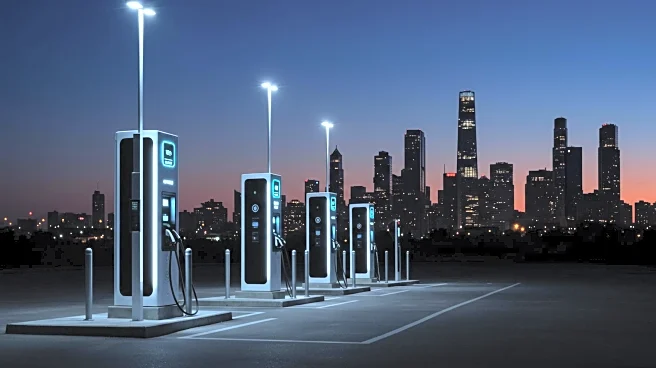What's Happening?
Global electric vehicle (EV) sales have increased by 27% in 2025, despite facing anti-electrification policies in the United States. According to a report by Rho Motion, a branch of Benchmark Mineral Intelligence, over 10.7 million EVs were sold in the first seven months of 2025. China led the sales with a 29% increase, followed by Europe with a 30% rise. In contrast, North America's growth was muted at 2%, with the U.S. facing policy headwinds. The report highlights the robust growth in Europe, driven by both battery electric vehicles (BEVs) and plug-in hybrids (PHEVs). Legacy automakers like Ford have shown significant sales increases, with Ford's EV sales rising by 324% in the first half of 2025 compared to the same period in 2024.
Why It's Important?
The surge in global EV sales underscores the growing shift towards electric mobility, despite policy challenges in the U.S. This trend highlights the increasing consumer demand for sustainable transportation solutions and the potential for significant market growth. The success of legacy automakers in transitioning to EVs suggests a promising future for the industry, with companies like Ford making substantial investments in affordable EV production. The muted growth in North America indicates potential challenges for U.S. automakers in keeping pace with global trends, which could impact their competitiveness in the international market.
What's Next?
As the deadline for the IRA consumer tax credit approaches in September, a short-term increase in U.S. EV demand is expected, followed by a potential dip. Automakers will need to navigate these policy challenges and continue investing in EV technology to remain competitive. The ongoing transition to electric mobility will likely drive further innovation and investment in the sector, with implications for manufacturing, supply chains, and consumer behavior. Stakeholders will be watching closely to see how U.S. policies evolve and how they impact the broader EV market.










